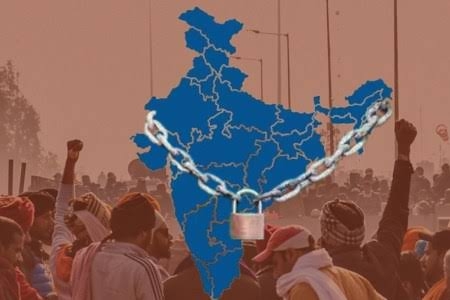Normal life in several parts of Odisha came to a standstill on Wednesday due to a nationwide Bharat Bandh, called by a joint platform of 10 central trade unions along with farmer and rural worker organisations.
The strike was staged in protest against the central government’s economic and labour policies, which the unions have termed as anti-worker and anti-farmer.
Essential services such as banking, postal delivery, coal mining, factory operations, and public transport were disrupted across the state. Backed by major trade unions including INTUC, AITUC, CITU, and HMS, the strike witnessed significant participation, particularly in industrial zones and rural belts. Reports suggest over 25 crore workers across India took part in the strike directly or indirectly.
Protesters held rallies and demonstrations in key locations, causing traffic congestion and affecting public services. Their demands included the withdrawal of new labour codes, a halt to privatisation of public sector undertakings, price control on essential commodities, and stronger social security for unorganised sector workers.
Although emergency services continued uninterrupted, several government offices operated with limited staff, and public transport ran on reduced schedules. Authorities deployed security personnel in sensitive areas to maintain law and order during the strike.





























